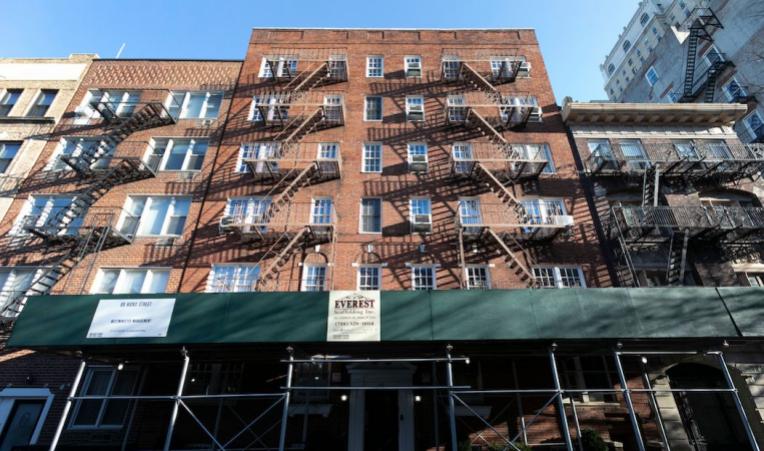Edited by TJV News
In a virtual vote The Rent Guidelines Board voted Wednesday night to freeze rent for the third time in seven years for rent-stabilized apartments.
NY Times reported:
The New York City panel that sets rents for the roughly 2.3 million residents of rent-regulated apartments on Wednesday froze those rents for a year, delivering a slight reprieve to tenants struggling in the worst economy in decades.
By a 6-to-3 vote, the panel, the Rent Guidelines Board, approved a measure that froze rents on one-year leases at their current levels and imposed a similar freeze in the first year of two-year leases, while allowing landlords to raise rents 1 percent in the second year.
The vote came after dueling proposals offered by the board’s tenant and landlord members failed. The tenant proposal would have frozen rents for two years, while the landlord members sought to raise rents 2 percent on one-year leases and 5 percent on two-year leases.
An eviction moratorium imposed by the state for those affected by the pandemic and economic shutdown expires in August.
“A lot of residents have lost their jobs and as much as one of the theories that people are using, well they can use their unemployment right to pay for rent? But unemployment is going towards food, towards electricity, utilities,” tenant advocate Paloma Lara told ABC news.
The mayor was quoted as saying “”Renters have never faced hardship like this,” said “They desperately need relief and that’s why we fought for this rent freeze. Now, more renters than ever before will get help keeping a roof over their heads. This is one step of many we have to take to get families through this crisis-but it’s a big one.”
Landlords and ownership Associations were critical of the vote and process.
NY Times reported:
After the vote, landlords criticized Mr. de Blasio for playing “pandemic politics” and not taking their own precarious situation into consideration.
The mayor was “denying owners of small buildings, mostly immigrants and people of color, the rent revenue needed to operate their buildings, finance capital improvements, infuse jobs and revenue into their neighborhoods, and pay property taxes that he raises every year,” said Joseph Strasburg, the president of the Rent Stabilization Association, which represents some 25,000 landlords of rent-stabilized units.
Some landlords say they’re not all wealthy billionaire corporate owners, as ABC news reported:
The owner a building in Chinatown said a rent freeze would put his livelihood in jeopardy.
“A lot of people don’t realize that people of color and black owners exist,” said landlord Jan Lee. “There’s this myth that all of New York is owned by corporate giants. That’s not actually true. In neighborhoods like mine and in neighborhoods where there’s people of color, they actually own those buildings and they house people of color. And we’re the ones who are creating stability right now. If we are gone, the city becomes a very ugly and expensive place.”
Lee is a third-generation Chinese-American landlord. His commercial tenants haven’t paid rent for several months now.
The Real Deal quoted one of the landlord representatives on the board:
Ahead of the final vote, Scott Walsh, a project director at Lendlease and one of two landlord representatives on the board, criticized the voting process as “little more than a theater” that was manipulated by the mayor. He said the RGB’s public members didn’t adequately understand the issues surrounding rental housing nor their duty to property owners.
“Public members must understand: Owners are members of the public, and you have an obligation to them through your service on this board,” he said. He went on to call on property owners to “continue the dialogue with public members and to write and communicate with them often to tell their stories.”
“When you are wondering how you are going to pay your increased property tax bill on July 1 this year and avoid an 18 percent penalty for any late payment, call the public members,” he said. “When tenants with jobs elect to not pay rent or assert false claims against you, call the public members. When your insurance carrier won’t renew your policy … Call the public members often, make yourselves heard at their workplaces.”
.





